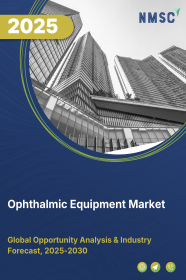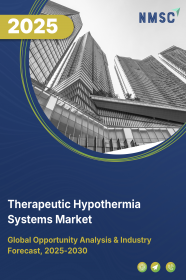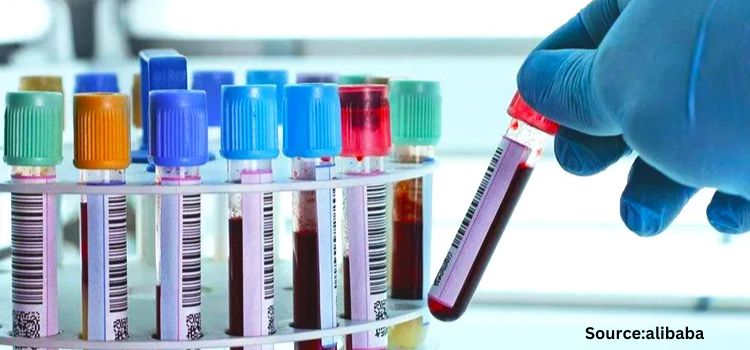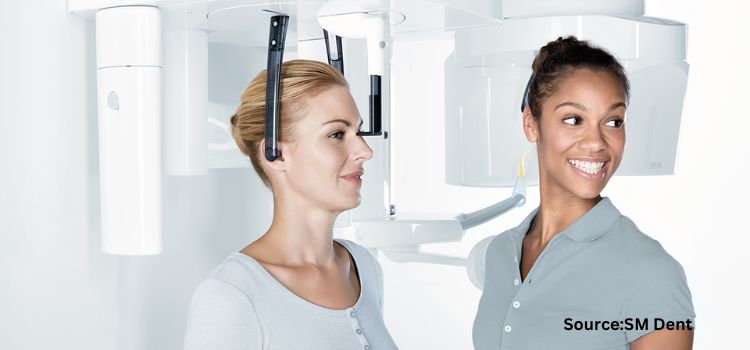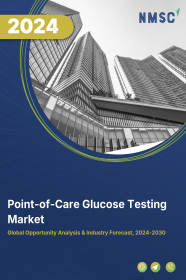
Point-of-Care Glucose Testing Market by Product Type (Lancing Devices & Strips and Blood-Glucose Meter), by Application (Type 1 Diabetes and Type 2 Diabetes), and by End User (Hospital, Clinics and Home Care Settings) – Global Opportunity Analysis and Industry Forecast, 2024–2030
US Tariff Impact on Point-of-Care Glucose Testing Market
Trump Tariffs Are Reshaping Global Business
Market Overview
The global Point-of-Care Glucose Testing Market size was valued at USD 3.24 billion in 2022 and is predicted to reach USD 4.39 Bn by 2030 with a CAGR of 4.4% from 2024-2030. The point-of-care glucose testing market includes testing equipment that can be utilised at or close to a patient to measure their blood glucose levels. The device portfolio includes handheld glucose meters and continuous glucose monitoring devices, along with associated consumables and fixtures in the form of disposable testing strips. It serves patients and healthcare professionals in a variety of contexts and offers several advantages such as providing immediate results and enabling prompt adjustments to treatment plans and interventions for diabetic patients. Overall, the market raises the quality of care for patients with diseases by making it easier to manage and treat the disease, hence promoting better healthcare delivery and spurring improvements in management and research.
Market Dynamics and Trends
The rapidly growing incidence of diabetes across the globe, driven by inactive lifestyles and unhealthy eating patterns, is significantly increasing the demand for point-of-care (POC) glucose testing. Non-invasive glucose testing is essential for effective diabetes management, as it provides immediate results and advances in technology have led to the development of more accurate and user-friendly devices for this purpose.
According to the, Institute for Health Metrics and Evaluation,529 million people globally had diabetes in 2021, and that number is projected to increase to 1.3 billion by 2050. Moreover, the point-of-care glucose testing industry is experiencing significant growth due to technological advancements that have enhanced the design and functionality of these devices. Modern portable glucose meters are becoming more accurate and reliable due to improved sensors, enabling timely and effective diabetes management.
For instance, in January 2022, Roche launched the cobas pulse, a hospital-focused glucose testing device designed with a durable body for easy disinfection and integrating Glytec's Glucommander software to manage blood sugar levels. The launch was aimed toward offering a user-friendly experience to patient, allowing easy detection and management of diabetic condition.
Furthermore, the rise in the global aging population, who are more susceptible to diabetes and metabolic disorders, is driving the need for regular blood glucose monitoring. According to the latest report published by the Institute for Health Metrics and Evaluation, in 2023, high prevalence rates for diabetes in all countries were observable among 65- and older with a worldwide prevalence rate of more than 20% among those aged 65 and above.
The highest prevalence rate of 24.4%, in particular, was noted in the age group of 75 to 79. POC glucose testing devices provide convenience and immediacy, enabling elderly individuals to monitor their glucose levels without frequent healthcare visits. However, concerns about the lack of accuracy and reliability compared to traditional laboratory methods is the major factor restraining the growth of the market.
On the contrary, the integration of biosensors and wearable devices with point-of-care (POC) glucose testing devices is expected to revolutionize diabetes management and treatment, enhancing the accuracy, speed, and usability, thereby creating numerous growth opportunities for the market in the coming years. By combining these innovative technologies, POC glucose testing devices will offer more reliable and convenient solutions for both patients and healthcare providers, improving overall diabetes care and monitoring.
For instance, in January 2022, Abbott introduced next-generation biosensing devices designed to revolutionize glucose monitoring, offering real-time data and continuous monitoring capabilities. Abbott's innovative bio wearable technologies aim to provide individuals with convenient and seamless glucose monitoring solutions that integrate into their daily lives.
Market Segmentations and Scope of the Study
The point-of-care glucose testing market report is segmented on the basis of product type, application, end user, and region. Based on product type, the market is divided into lancing devices & strips and blood-glucose meter. Based on application, the market is divided into type 1 diabetes and type 2 diabetes. Based on end user, the market is categorized into hospital, clinics, and home care settings. Regional breakdown and analysis of each of the aforesaid segments includes regions, such as North America, Europe, Asia-Pacific, and the Rest of the World (RoW).
Geographical Analysis
North America dominates the point-of-care glucose testing market share due to favorable regulatory environment and approvals from agencies such as the FDA. These agencies ensure the safety and effectiveness of the devices, boosting market confidence and encouraging the adoption of advanced glucose testing technologies.
For instance, in July 2023, Dexcom received Health Canada's approval for its next-generation continuous glucose monitoring system, the Dexcom G7. This system, with its precision and real-time data capabilities, significantly enhances diabetes management for Canadians and meets the growing demand for accurate and user-friendly glucose tracking.
Moreover, the rapidly growing number of obesities coupled with the heightened risk of diabetes, driven by the bad lifestyle and poor eating habits of people in countries such as the US and Canada further boosts the demand for the point of care glucose testing industry.
According to the latest report from the Centers for Disease Control and Prevention (CDC), obesity rates are rising significantly in the U.S., with prevalence exceeding 20% in every state and territory, indicating that more than one in five adults nationwide are affected.
With such rise in the growth of the diabetic and obese people in this region, the demand for POC glucose testing is poised to, driving the growth of the market. On the other hand, Asia-Pacific region is expected to witness significant growth in the market. This is due to the increasing number of diabetes patients in this region, leading to the rising demand and adoption of portable glucose monitors for effective diabetes management.
According to the International Diabetes Federation, in 2022, China had over 141 million people with diabetes, representing one in four individuals with the condition worldwide. This growing prevalence of diabetes highlights the urgent need for reliable and accessible POC glucose testing devices in the region.
Moreover, the expanding aging population in this region further boosts the point-of-care glucose testing market growth. As the number of elderly individuals rises, the demand for glucose testing devices for regular and accurate glucose monitoring among the elderly is poised to rise.
According to recent report published by the World Health Organization, by 2040, the proportion of people aged 60 and above in China is projected to reach 28%. With such increase in the number of individuals with diabetes, chronic conditions, and those requiring long-term care, the demand for point-of-care glucose testing solutions is anticipated to grow significantly in this region.
Competitive Landscape
Various key players operating in the point of care glucose testing industry includes F. Hoffmann-La Roche Ltd., Abbott Laboratories, Dexcom Inc, EKF Diagnostics Holdings plc, Nipro Corporation, Nova Biomedical, ACON Laboratories, Inc., Trividia Health, Inc., LifeScan, Inc., AgaMatrix and others. These market players are adopting various strategies, such as business expansion and product launches, to remain dominant in the market.
For instance, in June 2022, EKF Diagnostics has launched "EKF Link," a digital connectivity solution designed to enable hospitals, labs, and clinicians to securely manage and evaluate data from selected third-party point-of-care (POC) devices. This middleware connects EKF's products and analyzers, facilitating real-time remote data management that includes patient results and quality control information, supporting healthcare providers in making informed decisions and improving patient care.
Key Benefits
-
The point-of-care glucose treatment market report provides a quantitative analysis of the current market and estimations from 2024 to 2030. This analysis assists in identifying the prevailing market opportunities to capitalize on.
-
The study comprises an extensive analysis of the current and future point-of-care glucose testing market trends, to depict prevalent investment pockets in the market.
-
The information related to key drivers, restraints, and opportunities and their impact on the market is provided in the report.
-
The competitive analysis of the market players along with their market share is provided in the report.
-
The SWOT analysis and Porter's Five Forces model are elaborated in the study.
-
The value chain analysis in the market study provides a clear picture of the roles of stakeholders.
Point-of-Care Glucose Testing Market Key Segments
By Product Type
-
Lancing Devices & Strips
-
Blood Glucose Meter
By Application
-
Type 1 Diabetes
-
Type 2 Diabetes
By End User
-
Hospital
-
Clinics
-
Home Care Settings
By Region
-
North America
-
The U.S.
-
Canada
-
Mexico
-
-
Europe
-
The U.K.
-
Germany
-
France
-
Italy
-
Spain
-
Denmark
-
Netherlands
-
Finland
-
Sweden
-
Norway
-
Russia
-
Rest of Europe
-
-
Asia-Pacific
-
China
-
Japan
-
India
-
South Korea
-
Australia
-
Indonesia
-
Singapore
-
Taiwan
-
Thailand
-
Rest of Asia-Pacific
-
-
Rest of the World (RoW)
-
Latin America
-
Middle East
-
Africa
-
REPORT SCOPE AND SEGMENTATION:
|
Parameters |
Details |
|
Market Size in 2023 |
USD 3.24 Billion |
|
Revenue Forecast in 2030 |
USD 4.39 Billion |
|
Growth Rate |
CAGR of 4.4% from 2024 to 2030 |
|
Analysis Period |
2023–2030 |
|
Base Year Considered |
2023 |
|
Forecast Period |
2024–2030 |
|
Market Size Estimation |
Billion (USD) |
|
Growth Factors |
|
|
Countries Covered |
28 |
|
Companies Profiled |
10 |
|
Market Share |
Available for 10 companies |
|
Customization Scope |
Free customization (equivalent to up to 80 working hours of analysts) after purchase. Addition or alteration to country, regional, and segment scope. |
|
Pricing and Purchase Options |
Avail customized purchase options to meet your exact research needs. |
KEY PLAYERS
-
F. Hoffmann-La Roche Ltd.
-
Abbott Laboratories
-
Dexcom Inc.
-
EKF Diagnostics Holdings plc
-
Nipro Corporation
-
Nova Biomedical
-
ACON Laboratories, Inc.
-
Trividia Health, Inc.
-
LifeScan, Inc.
-
AgaMatrix

















 Speak to Our Analyst
Speak to Our Analyst



